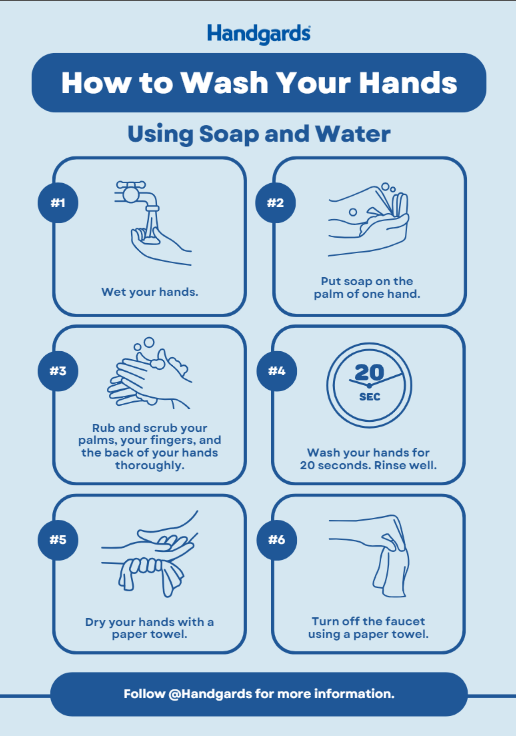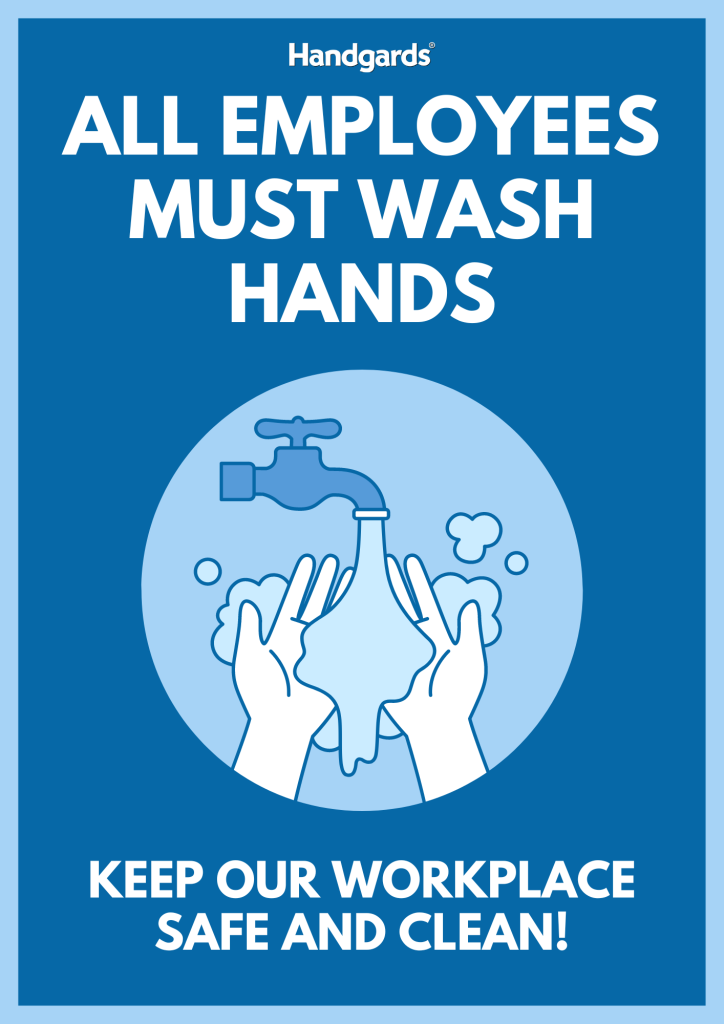Tip: Start typing in the input box for immediate search results.
-
Food Safety
-
Tools and Resources
-
Product Tips
-
Product Features & Benefits
-
Product Information
- Differences Between High and Low Density Bags
- Type of Disposable Glove Substrates
- What is the difference of an Ovenable Pan Liner and a Steam Pan Liner
- Cook Chill Bag
- Difference between High and Low Density Reclosable Bags
- Choosing the right option for Foodservice Apparel
- Differences between Bamboo, Wood and Plastic Expendables
-
Product Downloads
Importance of Washing your Hands
Hands-On Hygiene: The Vitality of Handwashing in the Food Service Industry
In the fast-paced world of the food service industry, cleanliness and hygiene play a pivotal role in ensuring the well-being of both employees and customers. Amongst various hygiene practices, none is more vital than washing hands. This article aims to emphasize the importance of handwashing and highlight the scientific process behind its effectiveness.
The Power of Handwashing
Handwashing is not just a routine hygiene practice – it is a powerful tool in preventing the spread of germs and maintaining a safe environment in the food service industry. Statistics reveal that hand hygiene can reduce the risk of gastrointestinal illnesses by 31% [1]. By simply washing hands, food service professionals can significantly reduce the transmission of harmful bacteria, viruses, and chemicals.
The Science behind Handwashing
The effectiveness of handwashing lies in the combination of soap, water, and vigorous scrubbing. Soap creates pockets called micelles that work as traps, capturing and removing germs, harmful chemicals, and dirt from your skin [2]. Lathering with soap and scrubbing your hands for at least 20 seconds destroys germs physically and effectively removes them from your skin [3]. The act of rubbing and scrubbing plays a crucial role in breaking down and dislodging any potential contaminants on the hands.

-
The Chemistry of Soap: Soap contains molecules with two distinct parts. On one end, there is a hydrophilic polar salt, which is attracted to water. On the other end, a hydrophobic chain of fatty acids or hydrocarbons repels water but is attracted to grease and oils [1]. This unique structure allows soap to bridge the gap between water and the oily substances on our hands.
-
How Soap Works: When we wash our hands, soap acts as a molecular bridge, connecting water and the dirty, germ-laden oils on our skin. Soap attaches to both the oils and water, effectively lifting the grime off our hands [1]. Additionally, soap molecules can latch onto the fatty membranes of bacteria and certain viruses, removing and even breaking them apart [1]. Once the contaminants are lifted, soap molecules form tiny clusters called micelles, which envelop and prevent them from reattaching to anything as they are washed away.
-
The Superiority of Soap: While water and hand friction can remove some dirt and germs, soap surpasses these methods in efficacy. By forming molecular bridges, soap not only acts as a cleaning agent but also enhances the removal of oils and germs from our hands [2]. Its ability to dislodge and surround contaminants ensures a thorough cleansing process.
Understanding the science behind soap reveals its extraordinary role in handwashing. By acting as a molecular bridge, soap effectively removes dirt, oils, and harmful germs from our skin.
The Essential Role of Handwashing in the Food Service Industry
In the food service industry, where the handling of food and interactions with customers are frequent, handwashing becomes even more critical. Foodborne illnesses, which can be caused by improper hand hygiene, affect millions of people each year [4]. The risk of contamination can be minimized by following proper handwashing practices. Handwashing before food preparation, before serving or handling food, after touching raw meats, and after using the restroom are essential steps to ensure food safety and protect consumer health.
Get our eye-catching poster for your kitchen operations, display it in easily accessible areas, and spread the word about your commitment to providing useful resources to your staff and customers.
Step-by-Step Handwashing Guide
Embracing Proper Handwashing Practices
To enforce a culture of proper handwashing in the food service industry, it is important to educate and train employees on the correct techniques. Providing the necessary tools and resources, such as well-stocked handwashing stations equipped with soap and clean towels, is crucial to promote compliance. Employers should encourage regular handwashing breaks, particularly during peak work hours, emphasizing the significance of maintaining hygiene standards for both employee health and customer satisfaction.
Ensure a safer and healthier environment by downloading our free “Must Wash Hands” poster today. This poster is a must-have for your kitchen and restrooms to remind everyone to follow proper hygiene practices. Don’t miss out on this opportunity to promote cleanliness and good health in your workplace or home.
Handgards Must Wash Hands Poster
Handwashing is more than just a routine – it is a powerful practice that can reduce the spread of germs and protect public health, particularly in the food service industry. By understanding the scientific process behind effective handwashing and embracing proper hand hygiene practices, food service professionals can actively contribute to a cleaner, safer, and more hygienic environment for all.
Sources:

